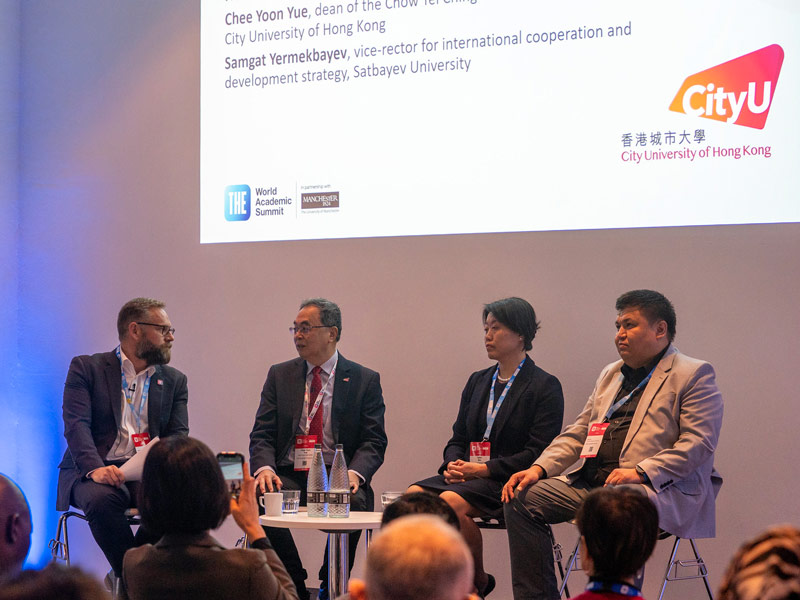The role of global mobility in enriching doctoral research
Exposure to international institutions and cultures can positively impact doctoral research. But how can institutions and students overcome the practical challenges of globalisation?

Sponsored by

There is much focus on global mobility for undergraduates. But is the value of international collaboration in doctoral projects being overlooked? At the 2024 THE World Academic Summit, a leadership session on global mobility in research reflected on the benefits of doctoral exchanges for researchers, universities and wider society.
Chee Yoon Yue, dean of graduate studies at City University of Hong Kong (CityUHK), said that the complexity of world challenges makes global mobility essential. “It breeds diversity and confidence of ideas and helps us to find the best possible solutions for the many challenges we are facing,” he said.
However, enabling international mobility at the doctoral level is not without its challenges, including funding, language barriers and regulatory challenges. Samgat Yermekbayev, vice-rector of international cooperation and strategic development at Satbayev University in Kazakhstan, explained how his institution set up an innovation and research centre in collaboration with CityUHK in just four months. “If you want a lot of possibilities and to build capacity, you need to work fast,” he said. Kazakhstan’s government also funds scholarship opportunities for master’s and PhD students, which are open to global applicants.
Language barriers can often be an obstacle to the global mobility of students. Some departments at the University of Cambridge have a minimum English language requirement for PhD students. As Hong Kong is a global city, CityUHK has always delivered most of its instruction in English, except for certain language-specific programmes. “Without English, students cannot enjoy the experience of interacting with PhD students from other countries,” added Yue. “Other practicalities might be visa applications, which we can assist with, or accommodation – we can guarantee accommodation for PhD students in our hostels, so the cost can be very manageable.”
University agreements on global mobility tend to be reciprocal. Helen Bao, professor of urban economics and public policy at the University of Cambridge, said it was important to take care of all parties’ expectations in such an arrangement. “Students’ expectations are practical. They are looking for career opportunities and to work with leading researchers in their area,” she said. “Supervisors might be trying to build their team or gain multidisciplinary expertise. A concrete research project can be a good starting point.”
Without tangible outcomes, it can be hard for the wider university to understand the value of the relationship, Bao said: “Global mobility is an expensive business and it can take a long time to see fruits from that investment. Without a sustainable funding structure, it can take years to see any outcome.”
Another challenge is how long an institution will allow students to stay overseas, with many having requirements around residency for a certain proportion of their PhD candidacy. But if departments and wider institutions are flexible and open to such exchanges, the benefits can be mutual, Yue said. “We are always looking for global connectedness. We want connections with institutions from every part of the world as this really enriches doctoral education.”
The panel:
- Phil Baty, chief global affairs officer, THE (chair)
- Helen Bao, professor of urban economics and public policy, University of Cambridge
- Samgat Yermekbayev, vice-rector of international cooperation and strategic development, Satbayev University
- Chee Yoon Yue, dean of graduate studies, City University of Hong Kong
Find out more about City University of Hong Kong.